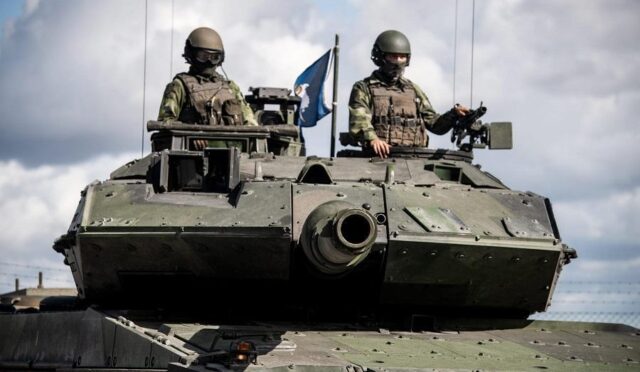UK Arms Exports Under Legal Scrutiny
Rights organizations have called upon judges to intervene and halt Britain’s supply of parts for fighter jets to Israel in light of the ongoing conflict in Gaza. Alleging a breach of international law, these groups have taken the government to court, seeking legal action against its arms export practices. The Palestinian rights group Al-Haq, with the support of well-known organizations like Amnesty International and Human Rights Watch, is aiming for a court decision that would stop the export of UK-made components for the Lockheed Martin F-35 aircraft.
Protests erupted outside the High Court in London, where around 50 demonstrators rallied with Palestinian flags and slogans such as “Stop Arming Israel: Stop the Genocide.” Inside the courtroom, Al-Haq’s lawyer, Raza Husain, emphasized the severe humanitarian crisis unfolding in Gaza, arguing the UK government had sanctioned these exports despite being aware of the risks that Israel could use them in violation of international humanitarian laws.
Concerns over Weapon Components and Humanitarian Impact
Al-Haq has detailed several components of the F-35, including critical features like the refueling probe and laser targeting systems, asserting that these parts are essential for the aircraft’s operation. According to their lawyers, the aircraft relies heavily on a continuous supply of UK-made parts to remain operational in the region.
The UK’s defense ministry has defended its stance in supporting arms sales, arguing that halting licenses would diminish the trust of the United States and might even endanger NATO’s cohesion. A government representative stated that their actions were compliant with international law, but this justification is facing mounting pressure given the humanitarian implications of the situation in Gaza.
Legal Proceedings and Historical Context
The current court case represents another chapter in a prolonged legal battle initiated shortly after the escalation of conflict on October 7, 2023, when Hamas launched a large-scale attack in Israel. Legal representatives for the Global Action Legal Network (GLAN) revealed that the UK government had consistently decided to continue its arms sales to Israel throughout 2023, despite the shifting landscape of conflict.
Even as the new Labour government placed a partial suspension on some 30 of approximately 350 arms export licenses that were found to contravene international humanitarian agreements, it notably excluded components related to the F-35. This has led to criticism of the government’s approach, particularly regarding the perceived loophole that enables continued arms supplies amid ongoing hostilities.
Government’s Position Amid International Pressure
In a statement to AFP, a UK government spokesperson explained that suspending licenses for F-35 components would jeopardize the integrity of the global F-35 program. They argued that stopping these exports could have dire consequences for NATO and disrupt international peace efforts. While some licenses related to the Israeli Defense Forces were suspended, critics maintain that the exemption for F-35 components undermines the government’s commitment to upholding humanitarian laws.
GLAN has condemned this situation, describing the F-35 exemption as a significant loophole allowing military components to continue flowing into Israel. Lawyer Charlotte Andrews-Briscoe highlighted this troubling divergence from domestic legal standards, emphasizing the UK’s complicity in supplying arms used in devastating airstrikes on Gaza.
The Human Cost of Continued Arms Sales
Recent reports indicate that the violence stemming from the conflict has had catastrophic consequences. The most recent Hamas assault resulted in at least 1,218 fatalities in Israel, predominantly civilians. In response, Israeli military actions have claimed over 52,908 lives in Gaza, according to data from the Hamas-controlled health ministry, with these figures corroborated by UN estimates.
Sacha Deshmukh, the Chief Executive of Amnesty International UK, has underscored the UK’s legal responsibilities under the Genocide Convention. He expressed grave concern that despite these obligations, the British government continues to authorize military equipment exports to Israel. This ongoing policy has raised serious questions about the UK’s accountability in its role amidst such a humanitarian crisis.







